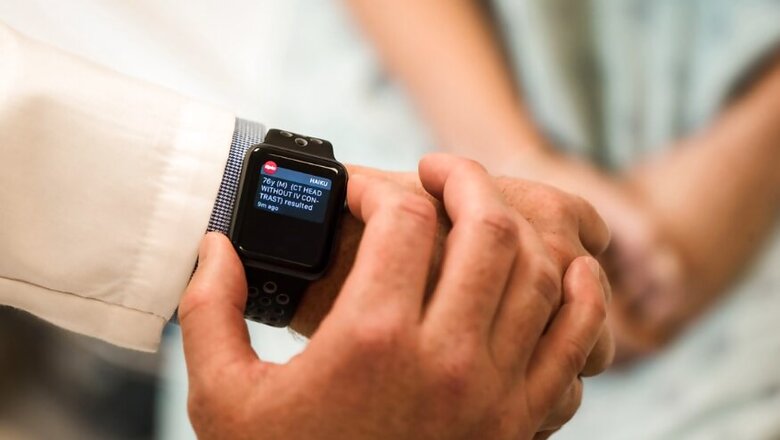
views
Apple is donating 1000 Apple Watch units for a study that attempts to find out the causes and the symptoms for disorders such as binge eating. The disorder is also known as Bulimia Nervosa. The study is being done by the University of North Carolina School of Medicine, and is called Binge Eating Genetics INitiative (BEGIN).
Bulimia is a potentially life-threatening eating disorder, in which people tend to binge eat. Subsequently, they then take steps to avoid weight gain, perhaps as a counter measure for all the food they have eaten—this includes forced vomiting, excessive exercising or fasting for inconsistent periods of time. According to the National Association of Anorexia Nervosa and Associated Disorders, as many as 30 million people in the United States alone suffer from an eating disorder. According to researchers, as many as 10 million cases of Bulima Nervosa are diagnosed just in India every year.
The BEGIN study will enrol 1,000 participants, ages 18 or older, who have experienced binge eating disorder or bulimia nervosa. Each participant will be wearing an Apple Watch during the 30 day period, so that researchers can monitor the heart rate to understand any deviations or noticeable trends during the time of the binge eating.
The addition of the Apple Watch to the BEGIN study is just the latest push for the smart wearable into the healthcare space. Earlier this year, Apple added a new features to the Watch to enable it to monitor for signs of Parkinson’s disease, by being able to track the tremors and dyskinesia symptoms. Researchers at Stanford have also teamed up with Apple to study how the Watch can be used to detect arrhythmias, while Cardiogram scientists have already proved how the Apple Watch can be used to identify the early signs of a possible stroke, through irregular heartbeats. Cardiogram is an app for the Apple Watch, and it relies on DeepHeart neural network designed to identify and predict any potential cardiovascular risk—including Afib, sleep apnoea and hypertension.
Earlier this year, Apple announced that patients of NYU Langone Health, Stanford Medicine and 40 other health systems in the US, representing hundreds of hospitals and clinics across the country, could now view their medical records on their iPhones. The updated Health Records section the Health app on the iPhone will compile medical information from various institutions, allowing for better monitoring—this app also collects data from the Apple Watch. “People hand you all sorts of things these days, and more data is almost never bad, but when they show up with paper, how do you summate that?” said Robert Harrington, cardiologist and chairman of the department of medicine at Stanford, in the official announcement.
Wearables are clearly catching on with consumers, and medical institutions are understanding their importance as well. According research firm Canalys’ data published in March, as many as 37.9 million wearables were shipped globally in the Q4 2017. The Apple Watch led the way with 8 million units, while Fitbit shipped 5.4 million units if its various wearables.
Also Read | Your Smartphone Data And Some AI Smarts Could Diagnose Parkinson’s Disease
Also Read | Fitbit Data Helps Solve Murder; Restarts Debate About Tech Companies Helping Law Enforcement




















Comments
0 comment